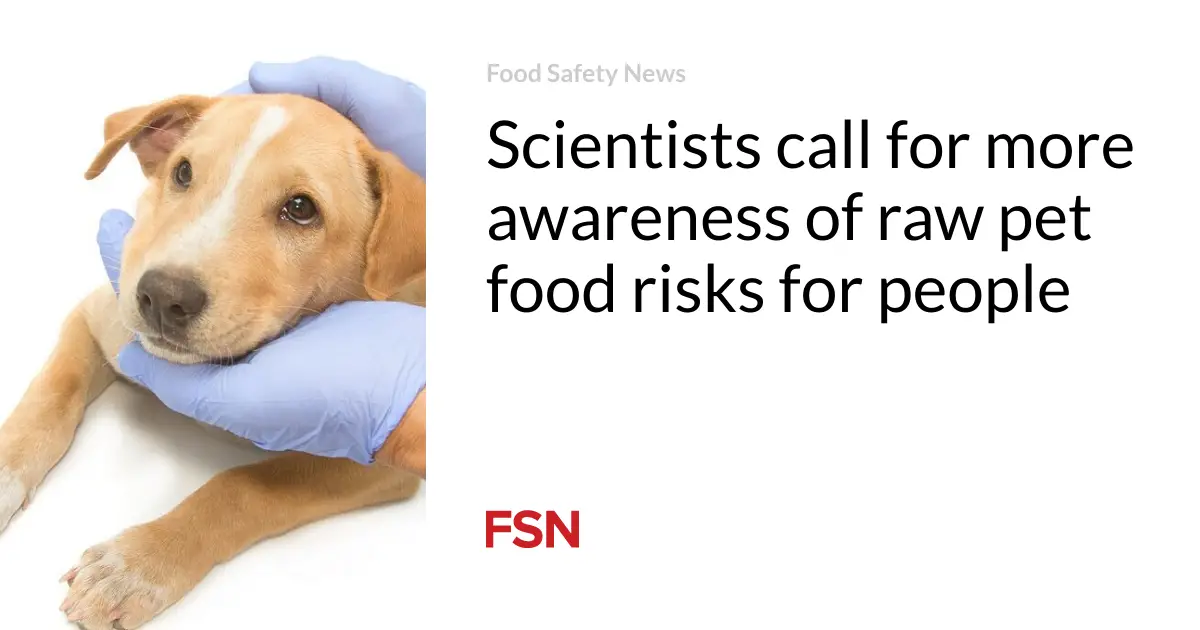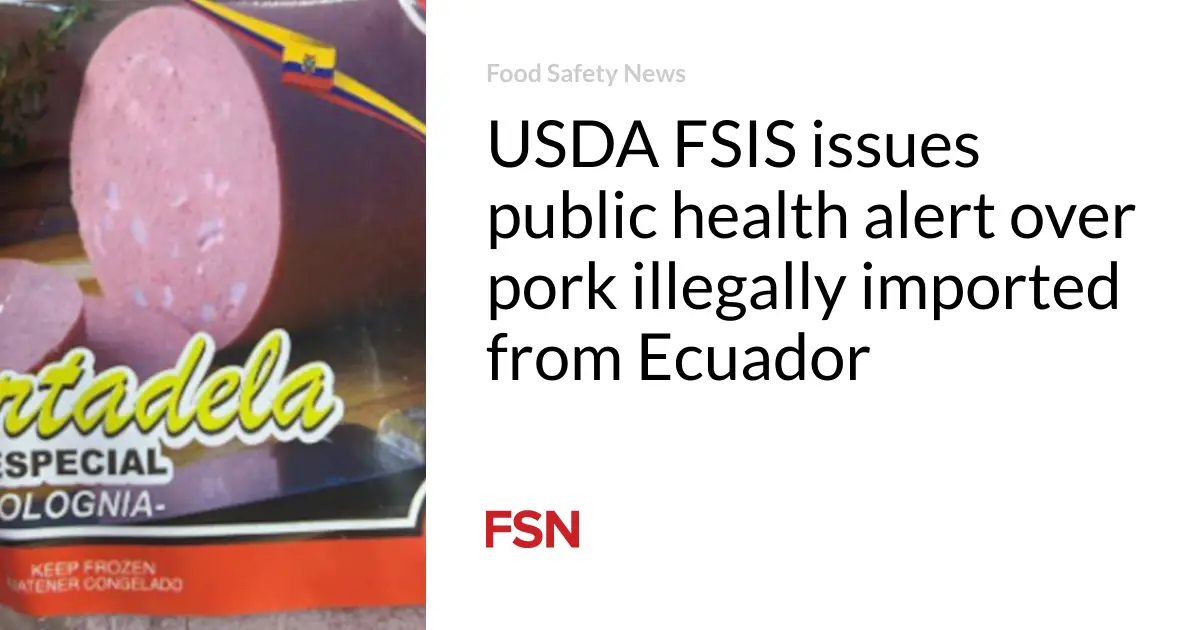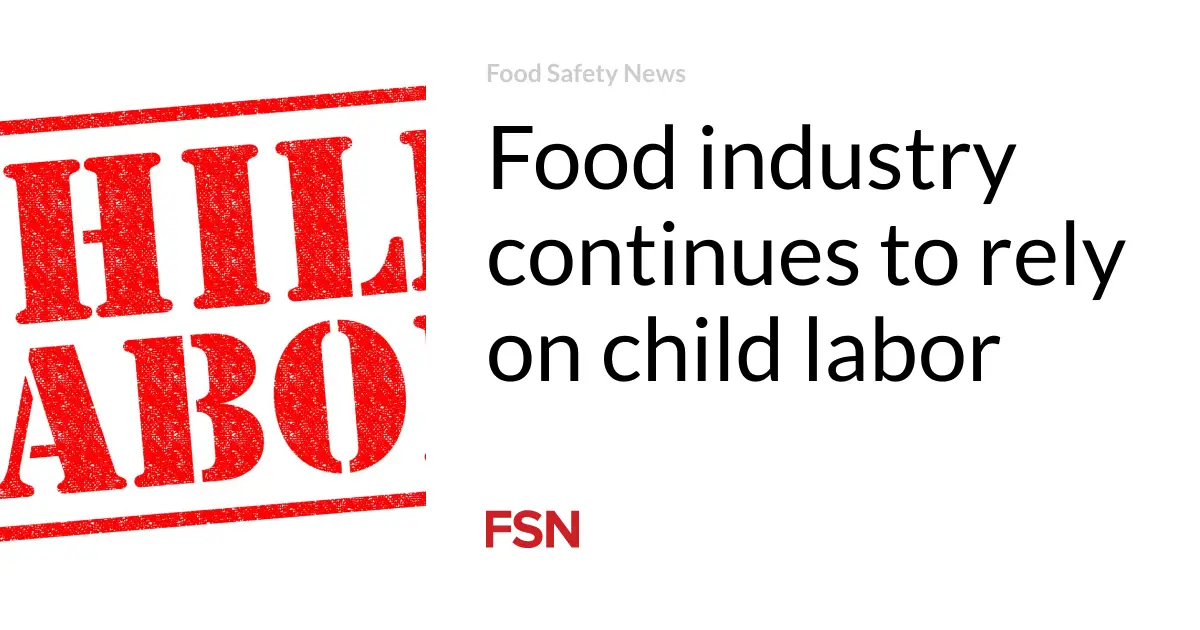
A study has added to evidence of the risk posed by contaminated raw pet food to human health.
Researchers investigated whether dog food, including raw meat-based diets (RMBD), available in Portugal can be a source of Salmonella or other Enterobacteriaceae strains resistant to last-line antibiotics such as colistin.
Since 2020, there have been more than 20 reports or recalls of pet food and RMBD in the EU because of the detection of pathogens.
Fifty-five samples from 25 brands of various meat and dog food types from 12 suppliers were screened by standard cultural methods between September 2019 and January 2020. Forty-one of the 55 samples were processed, and 14 were raw, according to the study published in the journal Eurosurveillance.
Promote awareness of risks
Only RMBD batches were contaminated, with 10 of 14 containing multidrug-resistant (MDR) E. coli and one MDR Salmonella. One turkey-based sample was positive for MDR Salmonella serotype 1,4,[5],12:i:- sequence type 34/cgST142761, similar to human clinical isolates. This finding suggests the role of raw pet food as a potential vehicle for the transmission of this serotype, said scientists.
Six Salmonella isolates, all identified as monophasic Salmonella Typhimurium, were isolated from the same sample.
Scientists detected 59 E. coli isolates in raw-frozen food samples but none were Shiga toxin-producing E. coli. Four colistin-resistant E. coli isolates were present from the same pet food brand in two batches. All isolates carried the mcr-1 gene.
“Our results strongly suggest that conventionally processed pet food is a safer option, emphasizing the critical role of heat treatment in pet food production for effectively mitigating microbiological hazards. These findings indicate a need for proactive actions involving the pet industry, food safety agencies, and pet owners to mitigate risks for public health,” said scientists.
“Promoting awareness of potential risks linked to RMBDs and guiding pet owners on proper handling and feeding practices are crucial steps in minimizing potential health risks. Appropriate hygiene measures and safe handling practices should be observed when dealing with pets and raw pet food to mitigate the risk of MDR bacterial infections in humans.”
Slovenian perspective
Another study has investigated risk perceptions and self-reported pet food preparation practices in the home setting among pet owners in Slovenia who feed raw meat-based diets to pets.
An online questionnaire was distributed to pet owners through social media groups in 2022 and 750 people were included in the analysis. These were divided into two groups — those who provided raw meat-based diets for pets and those who did not. Findings were published in the Journal of Consumer Protection and Food Safety.
Only one-third of respondents in both groups were aware of the potentially fatal consequences of food poisoning. The self-reported frequency of handwashing and surface cleaning was significantly higher in the raw group than in the conventional group.
Most respondents in the raw group reported pet health benefits as the main reason for choosing raw meat-based diets. The internet was the main source of information about raw pet food. Guidance for pet owners on the safe handling of raw meat-based pet diets is available from the European Pet Food Industry Federation.
Poor food safety practices were noted in the raw feeding group, with almost half rinsing raw meat before preparing it and 42 percent thawing frozen raw meat at room temperature on the kitchen counter.
“The findings of this study indicate that it is crucial to raise awareness of the potential for foodborne illness to be associated with handling raw meat and raw meat-based diets among Slovenian pet owners. Emphasizing the benefits of appropriate food safety actions to safeguard pet owners and the members of their household may serve as an effective strategy to motivate food safety behavior, but only once the pet owners are aware of the risks,” said researchers.
Home-based and selling on social media
Finally, home-based online pet food suppliers in England selling through social media have been warned about the importance of ensuring that the products they sell are legal.
The Heart of the South West Trading Standards Service made test purchases across Somerset and Devon. All 10 businesses failed labeling requirements. Officers tested dog treats and canine supplements; the product was incorrectly labeled in each case.
Businesses had not produced the pet food themselves. Eight had repackaged products made by other firms, and in two cases, the products had been manufactured for them by another company.
Test purchases were carried out in response to concerns about the proliferation of small-scale feed business operators setting up online. In response, five businesses are now registered for feed hygiene, two are retailing and have no requirement to register, and two will soon register.
Naomi Osborne, the service’s lead officer for agriculture, said: “Many of these businesses set up during or after the pandemic, and we were concerned that there was a lack of awareness of the requirements and legal obligations relevant to this type of operation.
“We were particularly concerned that labeling claims, such as the product being ‘homemade,’ or ‘free-from,’ or ‘natural,’ could not be substantiated. Businesses must adhere to the strict regulations, and that’s what we are here for, to advise and support and, where needed, to intervene.”
Rufus Gilbert, Devon County Council’s cabinet member for trading standards, said: “Many of these types of small businesses aren’t registered, and as a result, they are unaware of the legislative and feed safety requirements when producing pet food in a highly regulated industry. Accurate labeling is crucial to provide transparency and ensure pet owners make informed choices.”
(To sign up for a free subscription to Food Safety News, click here.)






